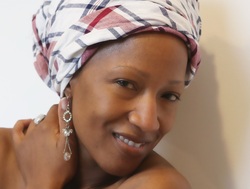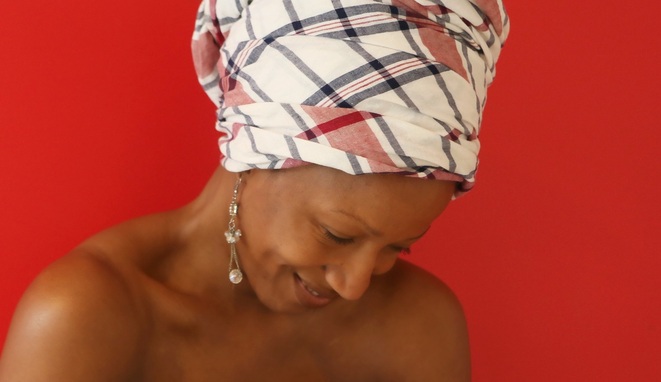Empowered Circumcised Women - Yes, "crazy as we want to be"! Five good reasons to read SiA Magazine:4/17/2014 How crazy can someone be to start a magazine for "empowered circumcised women"? Who does that? Aren't circumcised women supposed to be "mutilated"? What on earth could be so "empowering" about female circumcision?? Well, about three weeks ago I completed and posted on my website the first issue of SiA and the Shabaka Stone Magazine, a new African feminist and women's lifestyle quarterly designed to give voice to the "silent majority" of circumcised women globally who oppose anti-Female Genital Mutilation campaigns and the war being fought by feminist activists on our behalf. Given my erratic schedule, I only had time to quickly post the promo video on Facebook with a link to the website and digital magazine. The magazine had nearly 1,000 unique views in just a few days. My lead interview first published in NewstimeAfrica (read here) has registered on its own website over 250,000 views since February 6 (International Day of Zero Tolerance to FGM). Clearly, SiA Magazine is not such a crazy idea!!! But, the question remains, why should circumcised women care to read SiA Magazine? Ladies, here are five good reasons to embrace yourself:  1. To know the “other side” of the debate on female circumcision. Many of us come from societies that practice both male and female initiation and circumcision. While on the one hand we are taught that male circumcision is a “good”, hygienic and religiously grounded practice, on the other hand we are told that female circumcision is “bad”, that it is “mutilation” of perfectly “healthy” genitalia and interferes with sexual functioning. We are told further that Female Genital Mutilation (FGM) is a form of extreme patriarchal control over women and that it must be eradicated with self-righteous, robust anger and urgency. And so, like me, many of you have asked yourselves: How is that my mother, aunties, grandma and other women in my family have been participating in this great crime against women and girls and even subjected me to it? Are these women really acting out of ignorance, shame, oppression, and hopelessness? Why were all the women celebrating and rejoicing during my own ceremony or others I attended? 2. To understand that different women experience different forms of female circumcision in different ways. Many of us are bombarded with horrific media representations of the most extreme (yet comparatively rare) forms of female circumcision. We don’t recognize ourselves in those images and our experiences are taken completely out of context. According to anti-FGM activists, we supposedly cannot enjoy sex or we have “reduced” feeling. We are said to have all these intractable health problems yet uncircumcised western women are increasingly seeking so-called "vaginoplasties" or "designer vaginas" that look very similar to our supposedly mutilated vaginas. Clearly, these "crazy" women also see and experience the health and aesthetic benefits for themselves! 3. To know the real origins of female circumcision and how it relates to male circumcision in our African religious and cultural contexts. Unfortunately, the dominant western feminist discourse on female circumcision defines this practice as a (most insidious) form of patriarchal control over female sexuality. This patriarchy narrative has been repeated so often that it seems to be an obvious fact. But, many of us feel intuitively that this doesn’t make sense of our own experiences. Yet we can’t ask our mothers or female elders – many of them don’t know either; they say it’s “tradition”. What circumcised women need to keep in mind (and the media and western feminists will not tell you) is that most African societies that practice female circumcision also uphold subversive ideologies of female empowerment. 4. To be able to hold your own and maintain your self-esteem in the midst of anti-FGM hate campaigns and negative media stereotypes. Many people see terrifying youtube images of African women and girls being forced, coerced, kidnapped, tricked, held-down and savagely "mutilated" by either eerie looking, cross-eyed men or witch-like, toothless old women. It never occurs to the everyday person going about his or her business in western societies that you - the polite looking African female neighbor, housekeeper, nursing assistant, professor, doctor, scientist or coworker - might be a circumcised woman. While it’s not anyone’s business either way, it is important for you to keep their prejudices in perspective: In the eyes of the enlightened western world, female circumcision or “FGM” affects poor, illiterate, despondent and oppressed African women in some random rural village oceans away. According to this worldview, a woman cannot conceivably be both empowered and circumcised. 5. To appreciate that there are so many options that stop short of “zero-tolerance to FGM” slogans and anti-FGM hate campaigns. Our more powerful and morally superior western detractors need to take a lesson from the history and experience of homosexuals in their own countries – you simply cannot continue to hate and legislate against the preferences of adults and adolescents who have reached the age of majority to decide for themselves what to do with their own bodies – African women included. You don’t get to legislate your feelings of disgust or apprehension about the practices and preferences of others. This doesn’t mean that as a global society, we (including circumcised African women who are also human beings with free will) should not concern ourselves with the protection of innocent children. What this does mean is that we have to treat all children as equals – irrespective of sex, gender, culture, socioeconomic class, ethnic origin, religion and so on. This means we don’t get to use terms like FGM or MGM or any kind of “mutilation” in order to insist on an age of consent for all non-medically indicated genital surgeries on children. So, my circumcised sisters, just like much of the western world is only now coming to grips with the humanness of homosexuality and the need to embrace different lifestyle choices, I believe that good-minded, well-meaning people will come to accept that grown African women have the right to choose to uphold whatever forms of female circumcision we may desire for ourselves - whether as a cultural tradition or aesthetic preference, within traditional initiation settings or in hospitals and clinics - and not be judged by those who choose differently. SiA Magazine supports above all the principle of equality - our equality as circumcised women with other adult women and men in the world as well as the equal (not special) treatment of our daughters vis a vis our sons and other children worldwide. If you are a circumcised woman, you are by African definition empowered and SiA Magazine is especially for you!!!!! Contact Fuambai Sia Ahmadu: www.fuambaisiaahmadu.com [email protected] [email protected]
11 Comments
|
Archives
March 2024
Categories
All
|

 RSS Feed
RSS Feed